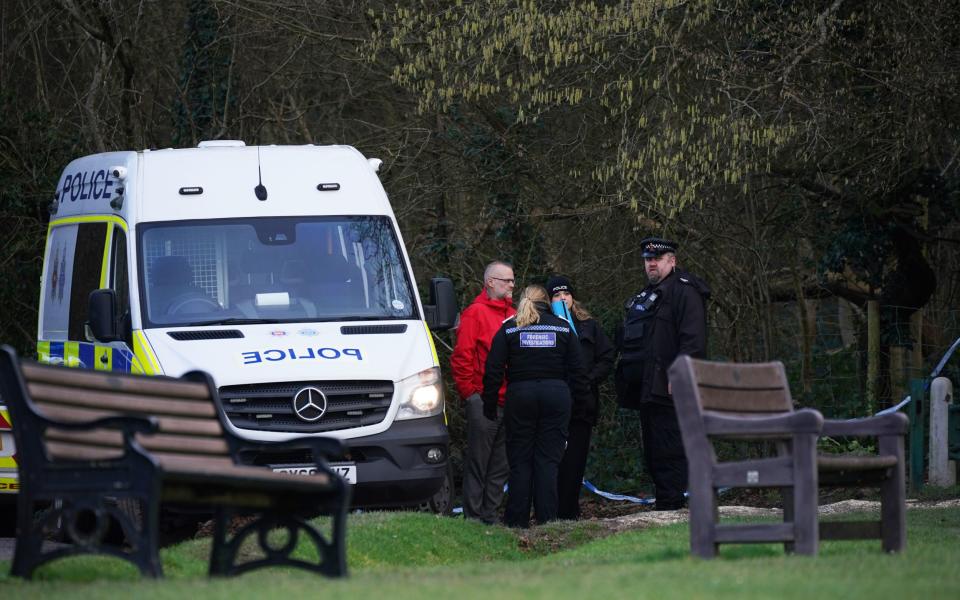Coroner refuses to release name of dog walker killed by dogs

A coroner is refusing to release the name of a dog walker who was killed by dogs, despite a requirement to make it public.
The 28-year-old woman died in a frenzied attack by the animals at the Gravelly Hill beauty spot, near Caterham, Surrey, on Jan 12.
On Thursday, Surrey Police confirmed it had closed a criminal investigation and handed a file for the case to the coroner.
Eight dogs were seized at the scene, with forensic analysis still ongoing, and police said no prosecutions will be brought against individuals.
The Telegraph can reveal that Surrey Coroner’s Court is refusing to reveal the name of the dog walker despite the inquest opening on Tuesday, in conflict with the Chief Coroner’s guidance.
The Surrey coroner has so far rejected arguments, made over multiple days by The Telegraph, stressing the public interest and the principle of open justice surrounding inquests.
In response, the court has told The Telegraph the listing will be published on Monday, 24 hours before the hearing, because “the family do not give permission” for the name to be released.

However, the Chief Coroner’s guidance, on the Ministry of Justice website, says: “The coroner must publish, preferably on a website (part of the local authority website or, better still, a separate website), and where possible at least seven days in advance of the hearing, the name and age of the deceased.”
The guidance also says the listing seven days before the public hearing should include the date, time and place of the inquest, the name of the coroner, whether it is a jury inquest and the date and place of death.
Coroners should only refuse access to personal information if there is “no obvious public interest in publicity”, it says, or for reasons of national security, legal privilege or the rights of witnesses.
Beth Grossman, a barrister at Doughty Street Chambers, told The Telegraph: “This is remarkable because there is no requirement in law for the family to give permission – that is not part of the legal framework. Imposing this sort of arbitrary restriction on open justice prevents the proper investigation of very serious incidents.
“Coroner’s courts don’t operate to the same rules of procedure as other parts of the courts and tribunals system. For members of the public, including bereaved families who find themselves in this system, it can be difficult and bewildering.”
An expert source on inquests who has been involved with numerous other cases, said: “This is very unusual and strange – the only precedent for this happening is in a case of children in care, but this is an entirely different situation.”
Guidance from the Independent Press Standards Organisation says: “The death of an individual is a matter of public record, and their death may affect a community as well as those who knew the individual personally.
“Journalists have a basic right to report the fact of a person’s death, even if surviving family members would prefer for there to be no reporting and regard the death as private.”
Surrey Coroner’s Court has published named listings for weeks and months in advance, and administrative staff confirmed that this is the norm. There are no known reporting restrictions on this case. There is no legal precedent or rule for bereaved families to decide whether the name of a deceased person can be released, or to decide the publication of coroners’ lists.
It comes amid heightened concern among members of the dog walking community and local people in south London and Surrey after two weeks with little information about what happened at Gravelly Hill. None of the dogs were banned breeds, with two Dachshunds and a Leonberger among them.
The fatal attack has prompted concern about contradictory regulations, with councils setting different limits on dogs that can be walked by one person, often between four and six.

